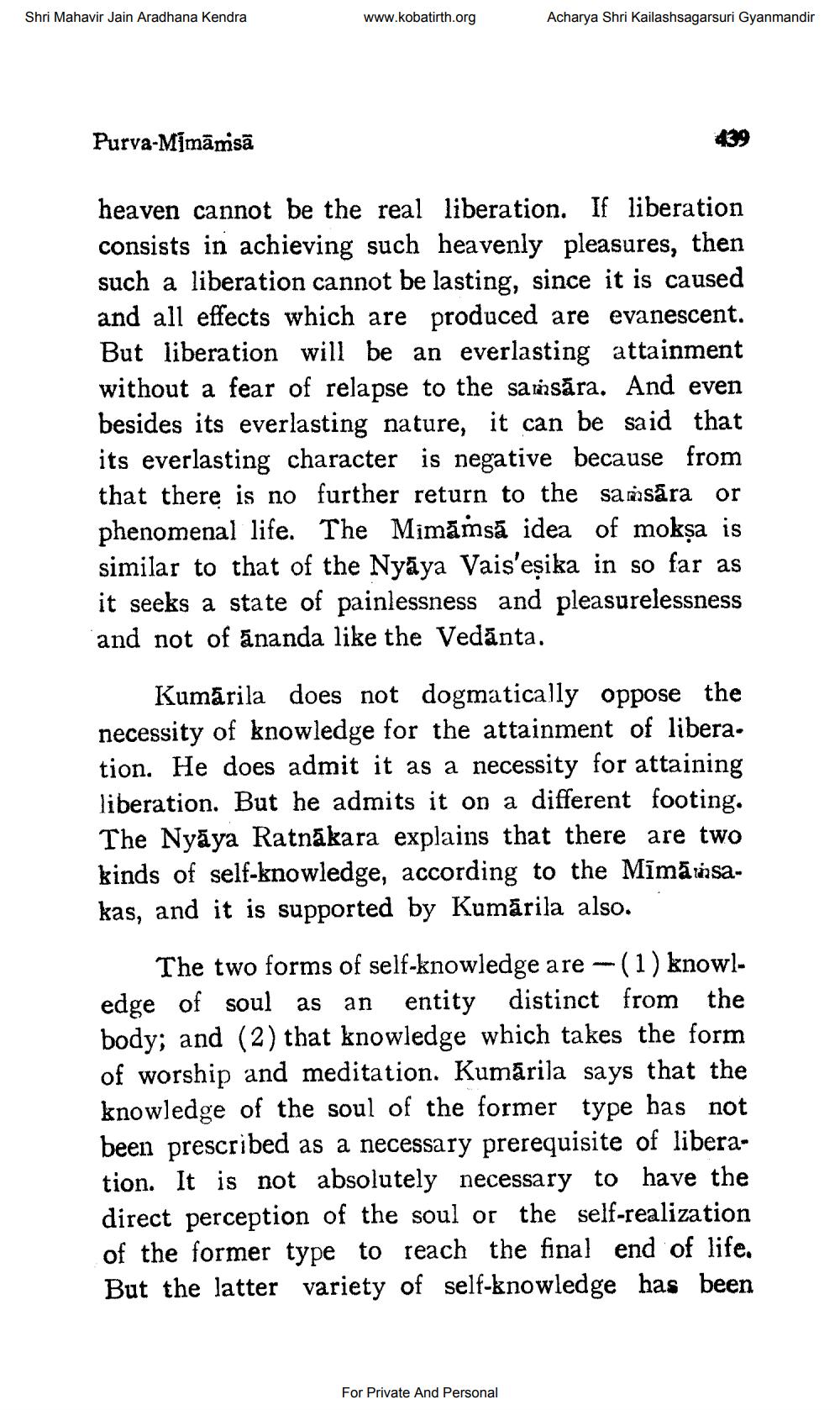________________
Shri Mahavir Jain Aradhana Kendra
www.kobatirth.org
Acharya Shri Kailashsagarsuri Gyanmandir
Purva-Msmāmsā
439
heaven cannot be the real liberation. If liberation consists in achieving such heavenly pleasures, then such a liberation cannot be lasting, since it is caused and all effects which are produced are evanescent. But liberation will be an everlasting attainment without a fear of relapse to the samsāra. And even besides its everlasting nature, it can be said that its everlasting character is negative because from that there is no further return to the samsāra or phenomenal life. The Mimāmsā idea of mokṣa is similar to that of the Nyāya Vais'eșika in so far as it seeks a state of painlessness and pleasurelessness and not of ananda like the Vedānta.
Kumārila does not dogmatically oppose the necessity of knowledge for the attainment of libera. tion. He does admit it as a necessity for attaining liberation. But he admits it on a different footing. The Nyāya Ratnakara explains that there are two kinds of self-knowledge, according to the Mîmārsakas, and it is supported by Kumārila also.
The two forms of self-knowledge are -(1) knowledge of soul as an entity distinct from the body; and (2) that knowledge which takes the form of worship and meditation. Kumārila says that the knowledge of the soul of the former type has not been prescribed as a necessary prerequisite of liberation. It is not absolutely necessary to have the direct perception of the soul or the self-realization of the former type to reach the final end of life. But the latter variety of self-knowledge has been
For Private And Personal




